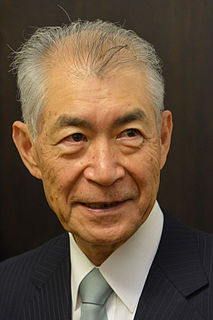A Quote by Martha Beck
In one century, we've added 28 years to our average life span - a change so rapid that our brains couldn't possibly have evolved to accommodate it.
Related Quotes
When I am at a dinner table, I love to ask everybody, 'How long do you think our species might last?' I've read that the average age of a species, of any species, is about two million years. Is it possible we can have an average life span as a species? And do you picture us two million years more or a million and a half years, or 5,000?
This increase in the life span and in the number of our senior citizens presents this Nation with increased opportunities: the opportunity to draw upon their skill and sagacityand the opportunity to provide the respect and recognition they have earned. It is not enough for a great nation merely to have added new years to lifeour objective must also be to add new life to those years.
If you see voters as rational, you'll be a terrible politician. People are not wired to be rational. Our brains simply evolved to keep us alive. Brains did not evolve to give us truth. Brains merely give us movies in our minds that keeps us sane and motivated. But none of it is rational or true, except maybe sometimes by coincidence.
Our physiological constitution is obviously a product of Darwinian processes, insofar as you buy the evolutional theory as a generative, as an account of the mechanism that generated us. Our physiology evolved, our behaviors evolved, and our accounts of those behaviors, both successful and unsuccessful, evolved.
What had really caused the women's movement was the additional years of human life. At the turn of the century women's life expectancy was forty-six; now it was nearly eighty. Our groping sense that we couldn't live all those years in terms of motherhood alone was "the problem that had no name." Realizing that it was not some freakish personal fault but our common problem as women had enabled us to take the first steps to change our lives.



































